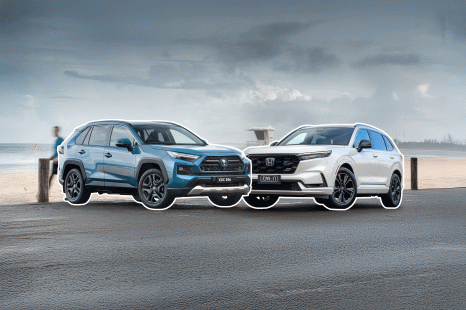

Andrew Maclean
Honda CR-V RS e:HEV vs Toyota RAV4 Edge Hybrid: Spec battle
12 Days Ago
How does Audi’s fancy new coupe-inspired Q5 Sportback fare in its price-leading not-so-fancy base diesel form? Curt finds out.
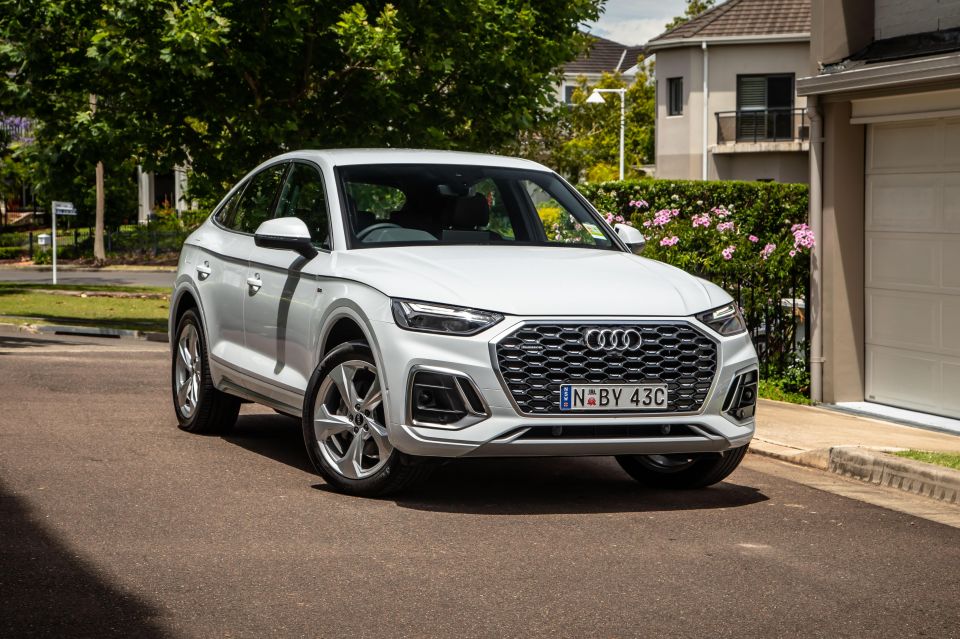
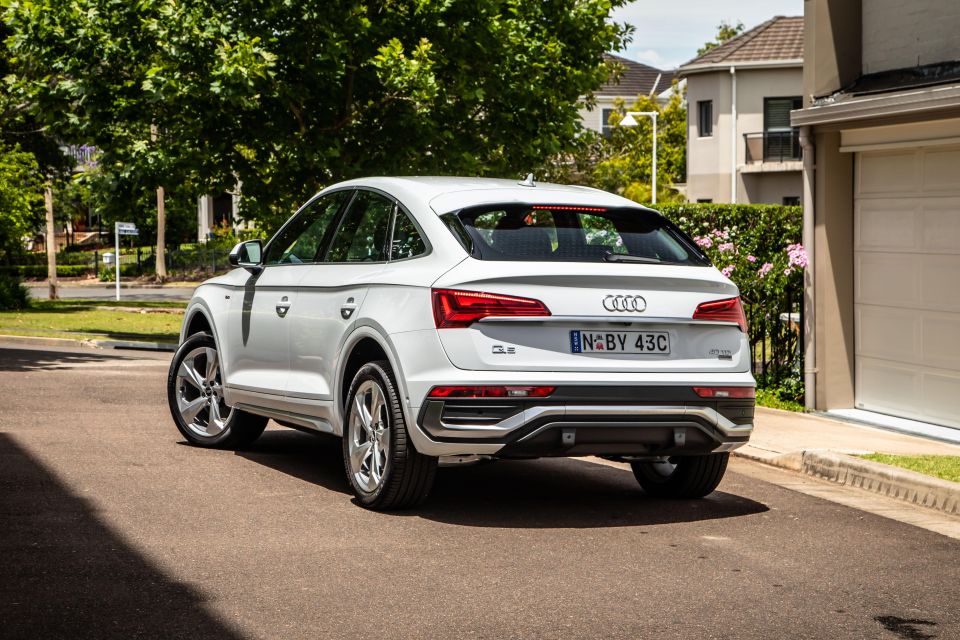

Journalist
New from
$68,900
excl. on-roads

Journalist
New from
$68,900
excl. on-roads


Journalist
New from
$68,900
excl. on-roads

Journalist
New from
$68,900
excl. on-roads
Quickly see how this car stacks up against its competition. Select any benchmark to see more details.
Where expert car reviews meet expert car buying – CarExpert gives you trusted advice, personalised service and real savings on your next new car.
Audi climbed aboard the coupe-silhouetted bandwagon with the compact Q3 Sportback and flagship Q8, but it’s a latecomer in the medium segment compared with stalwarts such as BMW X4 and Mercedes-Benz GLC Coupe.
And you don’t have to squint too hard to see that this relatively fresh Audi Q5 Sportback – one more fetching in metal than it might appear on screen – brings a neat and tidy look to its popular mid-size SUV, if one not all that compelling or adventurous. At least, that is, in base 40 TDI quattro guise in an austere white and silver colour theme.
So why might you be drawn to a sporty, extra-cost, coupe-reminiscent SUV as a base model proposition with diesel power?

Well, for one big thing, there’s outlay. More details are below, but in short Audi’s fastback family hauler is quite a bit cheaper than BMW’s, and a helluva lot more affordable than its logical rival from Mercedes-Benz.
In entry 40 TDI spec, at least, Audi offers you style on a budget, right down to fuel costs. That’s because its key rivals are both petrol powered.
It arrives closely in the tyre tracks of the second-generation Q5 wagon’s major midlife facelift, one that benefited from extensive design fettling outside and in, slicker infotainment, a higher level of standard kit and its fuel-saving ‘ultra’ trickery. A good foundation upon to which to craft a Sportback version, then.
So what do you gain or lose going for the sloped tailgate? And is the base oiler guise any good? Let’s find out.
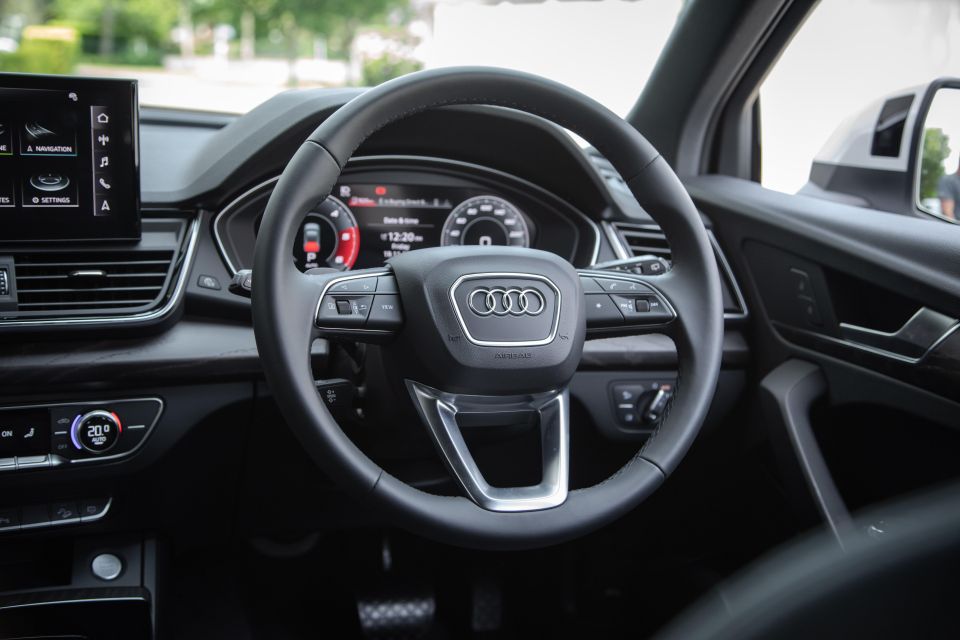
The 2022 Audi Q5 40 TDI Sportback quattro S line starts from $77,700 plus on-road costs. Right off the bat, that’s fair walk-up from its Q5 wagon twin, which steps off from $69,900, though our test car is perhaps closer in specification to the higher-grade 40 TDI quattro Sport which, at $75,900, just undercuts the base Sportback on test here.
Want petrol? That’s $86,300 for the 45 TFSI quattro S line. Audi is not offering the ballsier 3.0-litre 50 TDI combination in Sportback, so if you’re after a lustier diesel you’ll have to stump up $110,900 for the full-house, performance SQ5 Sportback version. Or shop for a Q5 wagon instead.
Diesel-powered premium-grade mid-sized SUV-coupe alternatives? There are none. The Genesis GV70 2.2D, at $71,676 plus on-roads, brings upmarket oiler goodness, if without a coupe roofline.
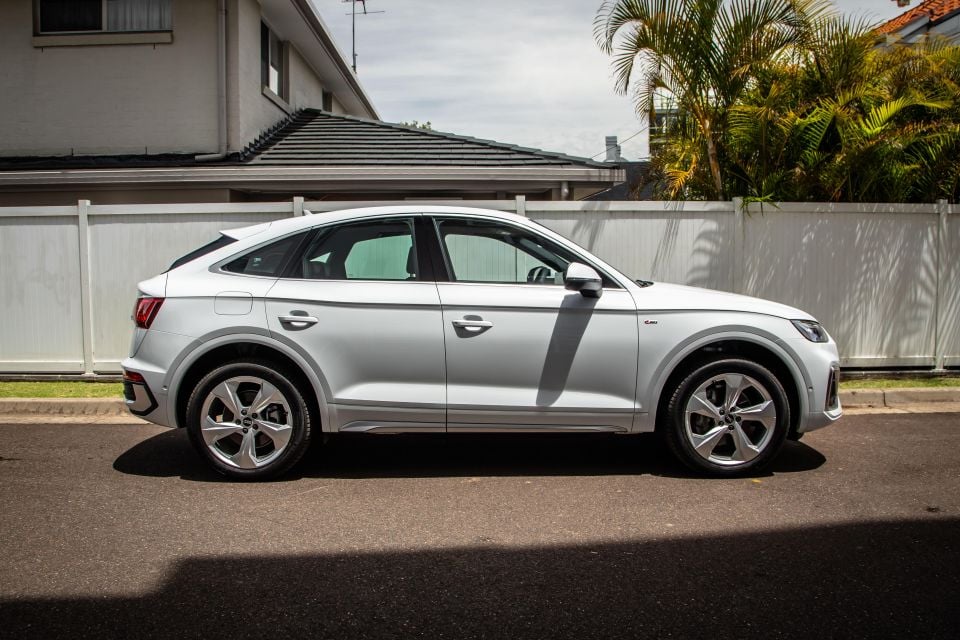
Unlike the X3 range, BMW’s coupe-like X4 is petrol only, clocking on at $85,900 for the entry xDrive20i, some $8800 more than our Audi. Meanwhile, the Mercedes-Benz GLC Coupe stable is all petrol and the most logical rival from Stuttgart is the GLC300 that arrives at – gulp – $104,900, or $27,200 more than a cleanskin Q5 Sportback 40 TDI.
Our test car gets just two options: metallic Glacier White paint, at a $1531 upcharge, and another $400 for fine grey ash cabin inlays finished in natural grey-brown.
An enticing price, then. But how does the value pitch shake out relative to how much equipment is fitted?
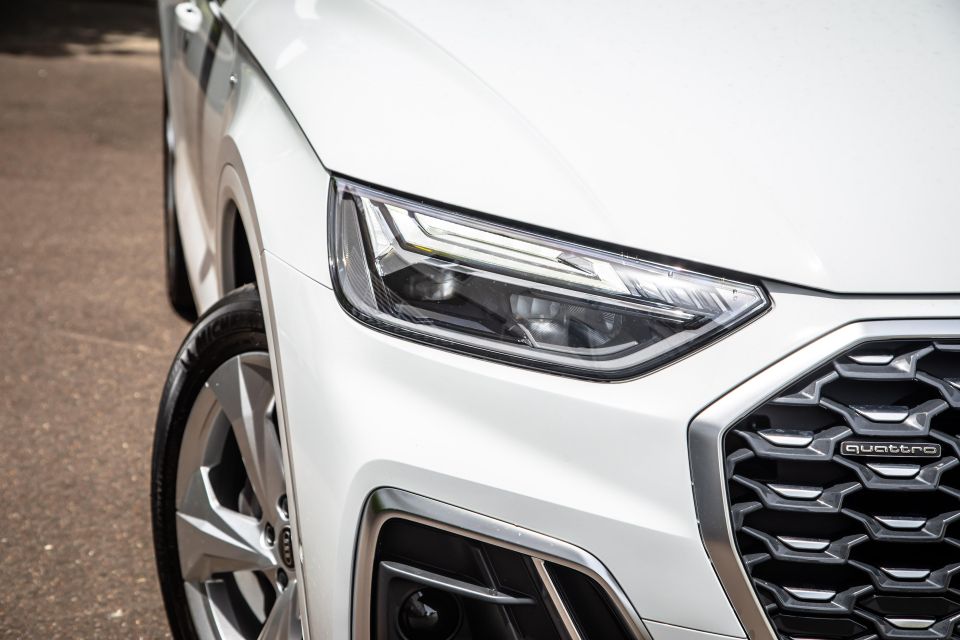
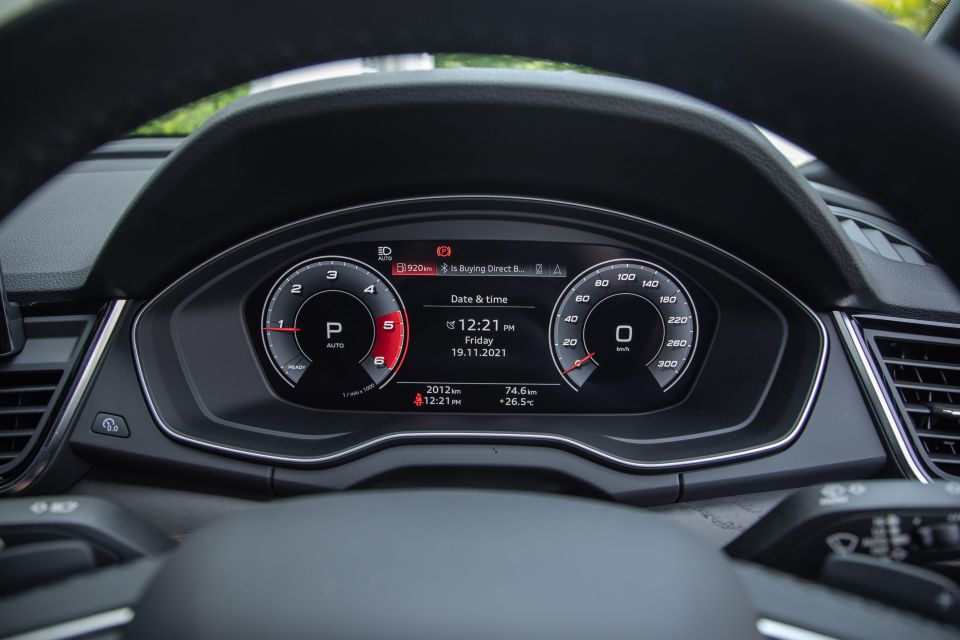
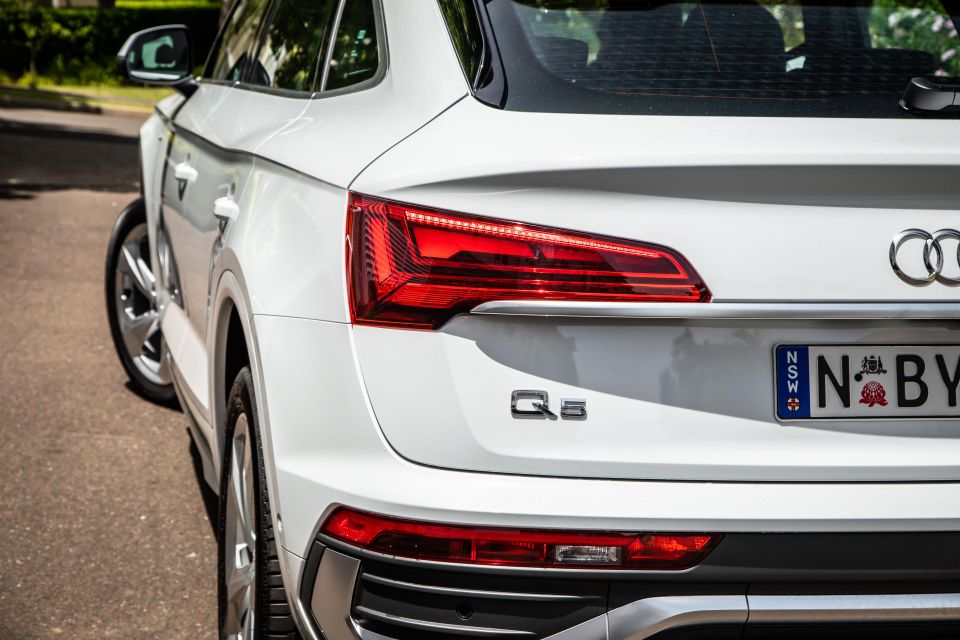
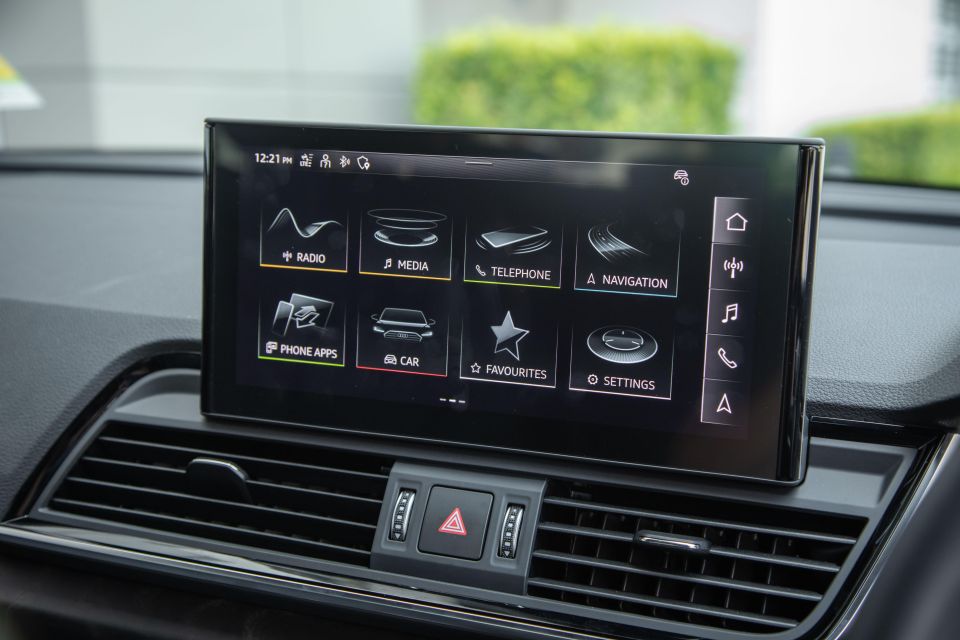
Q5 Sportback 40 TDI S line highlights:
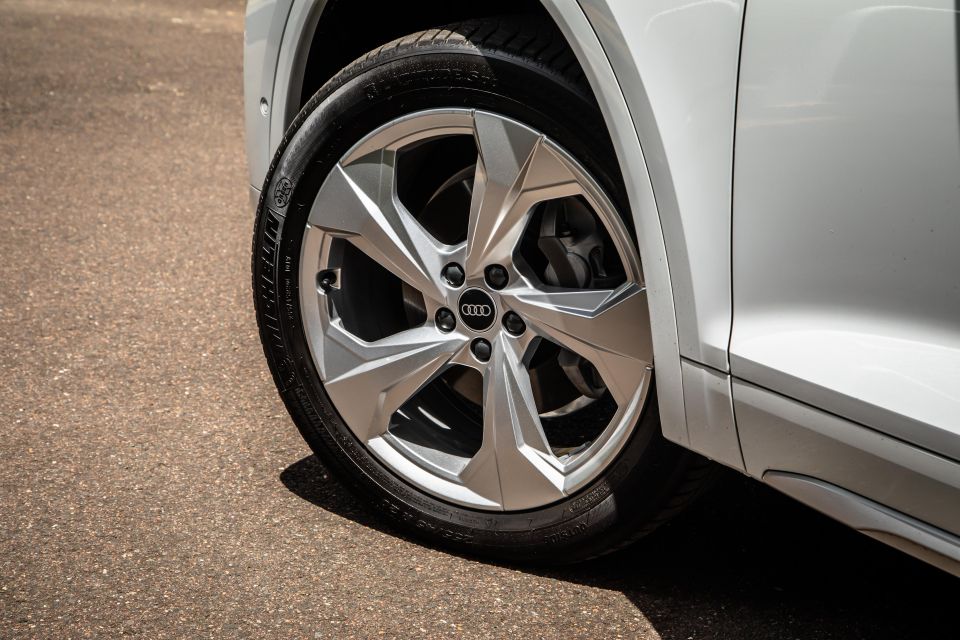
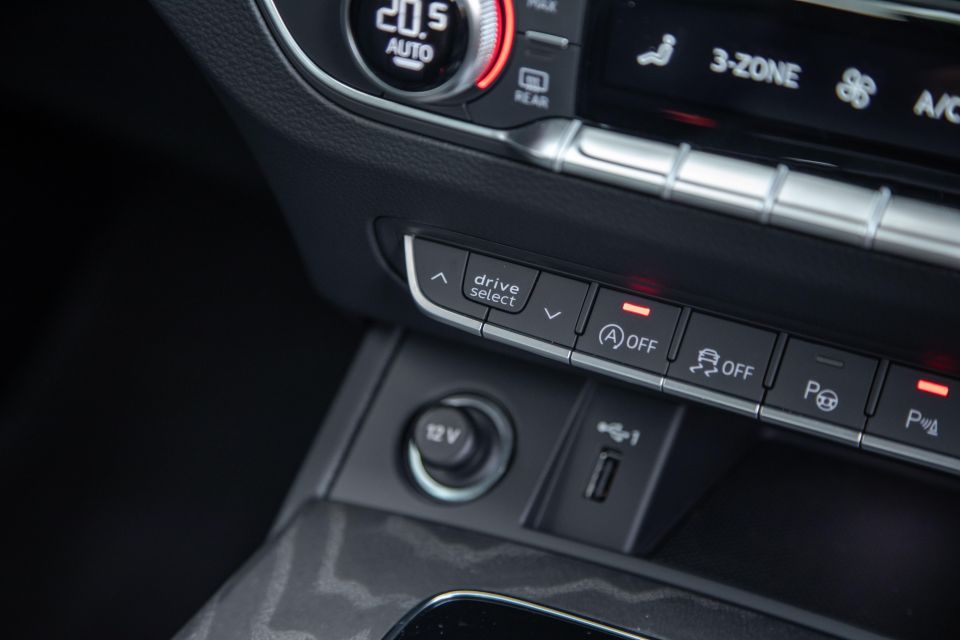
There’s a lot of nice stuff on offer for the entry price. But you do have to stump up for the Comfort and/or Technik packages, or select individual options, for some of the niceties offered further up the Q5 Sportback range.
On that, the Comfort suite brings the handy sliding and reclining rear seating, heated front seats with memory and extended wing mirror functionality.
Meanwhile, the Technik bundle brings Matrix LED headlights, B&O 19-speaker surround sound, privacy glass and a head-up display. Adaptive suspension, OLED tail lights, a sunroof and other goodies are all extra cost.
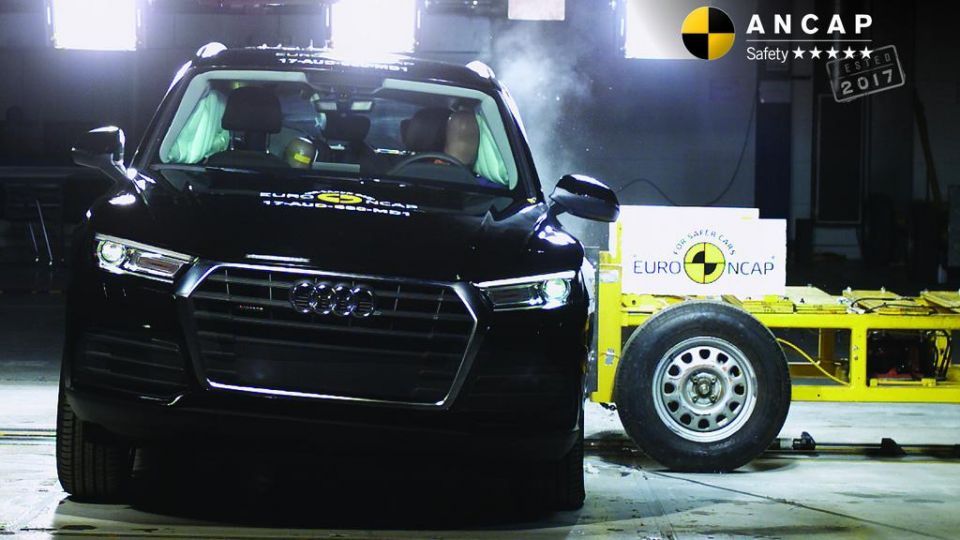
Sportback versions carry over the five-star ANCAP rating of the Q5 wagon, from assessment conducted by Euro NCAP back in 2017.
It scored 93 and 86 per cent respectively for adult and child occupant protection, with 73 per cent for pedestrian protection and 58 per cent for safety assist.
All Q5 Sportback models feature:
The entry Q5 fits ‘city’ type autonomous emergency braking, operating at up to 85km/h, with passive cruise control, although all-speed AEB format with turn assist and adaptive cruise control can be optioned at an extra cost.
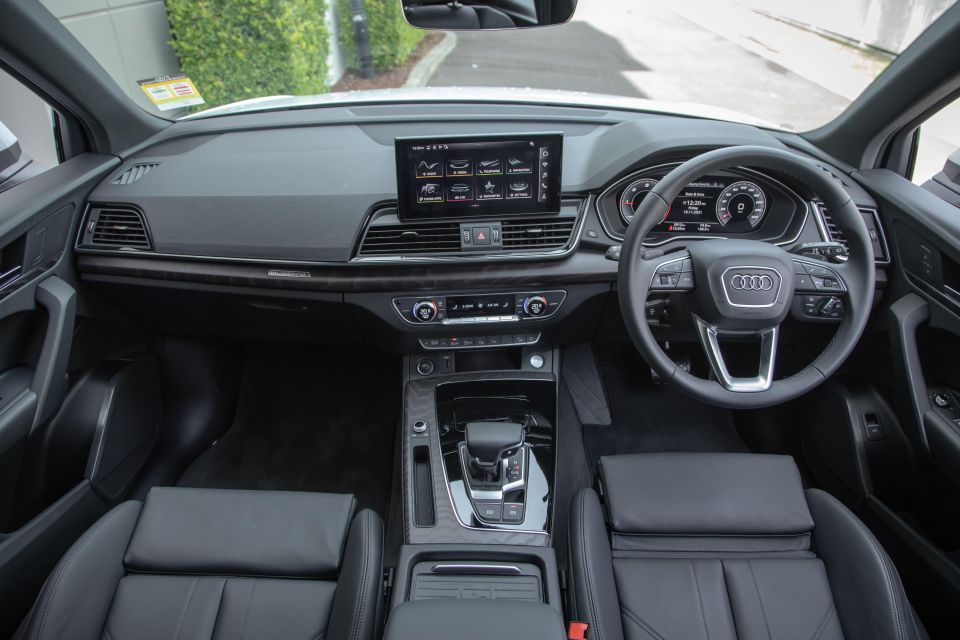
So, what do you lose in space compared with the wagon? At 510 litres, the boot is smaller by just 10 litres, or down by around four per cent in volume. So next to nothing.
Audi advertises the same figure for 40 TDI, with its static rear seat, as higher-grade variants that get the tilt and slide rear pew as standard (and optional on the base car). Point is, with the adjustable rear seat, you can also tune up luggage volume to suit a particular need.
The only other area trimmed in Sportback is rear headroom, by around 20mm. Given both wagon or Sportback styles both have decently high ceilings, any sense of compromise is getting nitpicky.
Unsurprisingly, the rest of the cabin is familiar gen-two, facelifted Q5 wagon in design and feel.
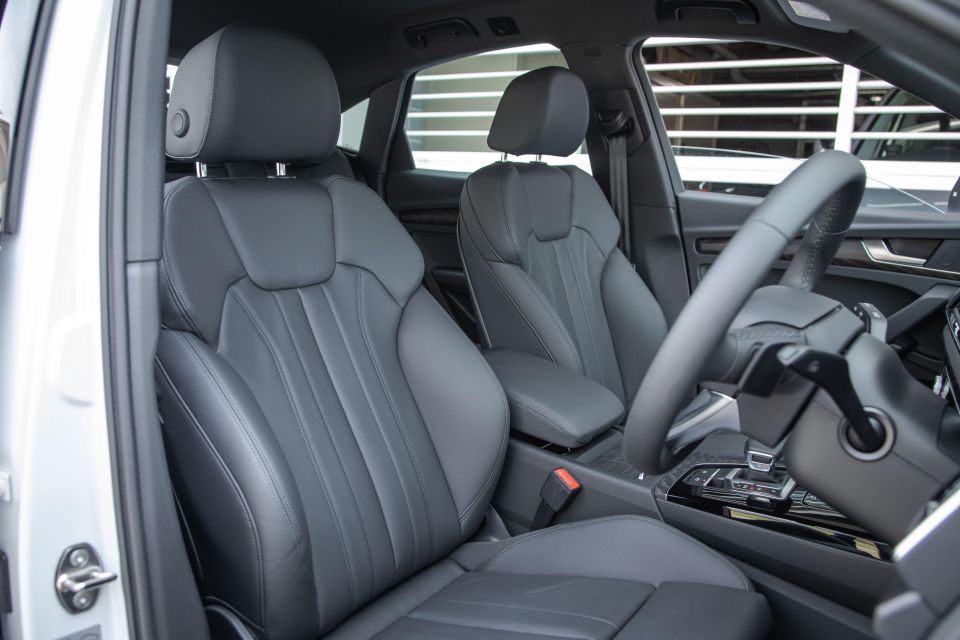
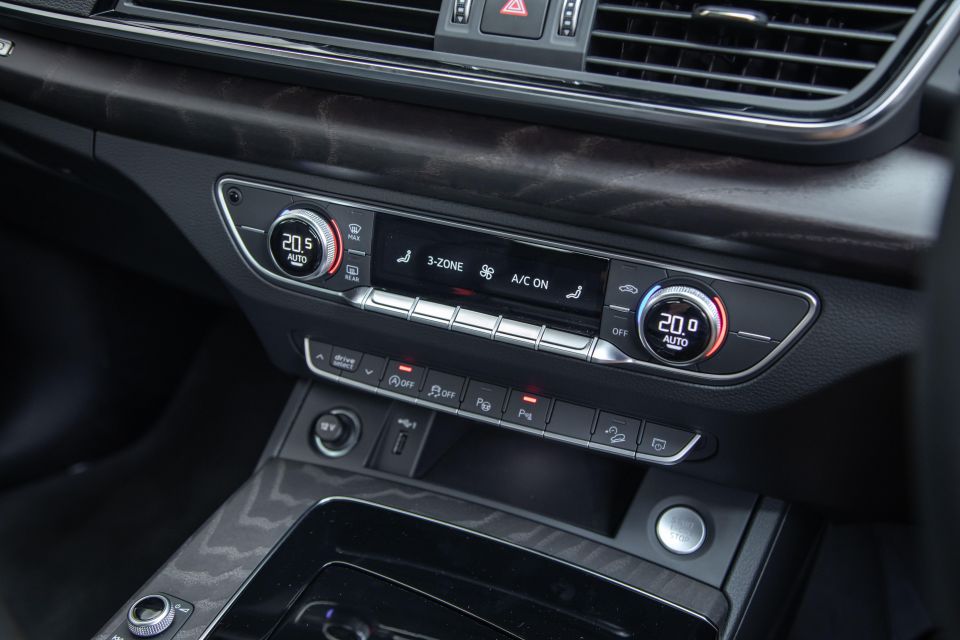
In base 40 TDI trim, it’s neat and pleasing, with intuitive control and button placement, its dual digital display hardware bringing a sense of occasion to a very mid-grey theme a little light on feel-good vibe and sportiness. The nice, optional open-pore wood trim really earns its keep.
The seats look purposeful, but are quite relaxed in feel with pleasing tactility, with a large degree of tilt, slide and lumbar adjustment that’s quite useful because the front seats can feel a touch awkward and lacking in under-thigh support.
Getting the right seat and steering wheel positioning, at for your author’s tastes, demanded a whole lot of fiddling. Still, there’s a nice airy ambience thanks to the large glass and high ceiling.
The Virtual Cockpit digital instruments and large 10.1-inch infotainment display conspire to quite an upmarket look. No doubt they’ll be dealmakers for some buyers cross-shopping German SUVs on price and the sense of value added.

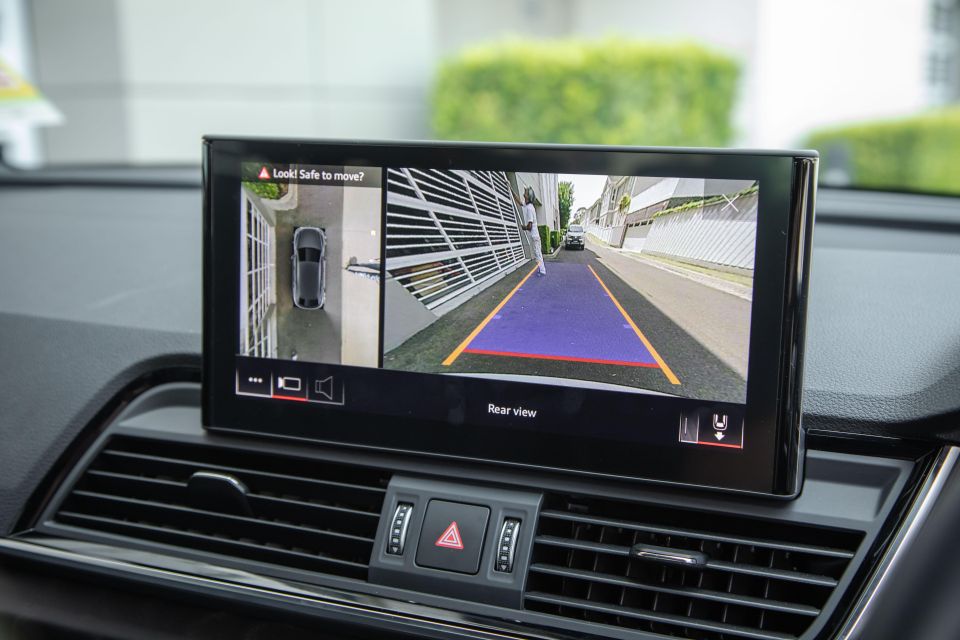
The more I use the latest ‘MMI touch’ format, the more mixed I feel about it. At its core, it’s a great system, its content relatively streamlined and for the most part easy and not overly distracting to use.
But if you don’t commit to assigning you and every other user a profile, the system takes forever to sort itself out on start-up, forcing phone reconnection and much fiddling to get smartphone mirroring or Bluetooth audio streaming up and running. Replacing the old touch console controlled with what looks like a plastic ashtray also smacks of afterthought.
A nice wheel, typically high-quality switchgear and the handy tap-for-sport-mode transmission controller are all familiar Audi fare, though the coin bin (near the ashtray) ought to be able to fit a smartphone given its proximity in the central stack to the sole USB-A port.
The inductive phone pad, however, is hidden under the armrest lid, which tidies things up a bit though you do have a habit of forgetting it’s there the Q5 will constantly prompt you that “your phone is still in the vehicle” on exit.
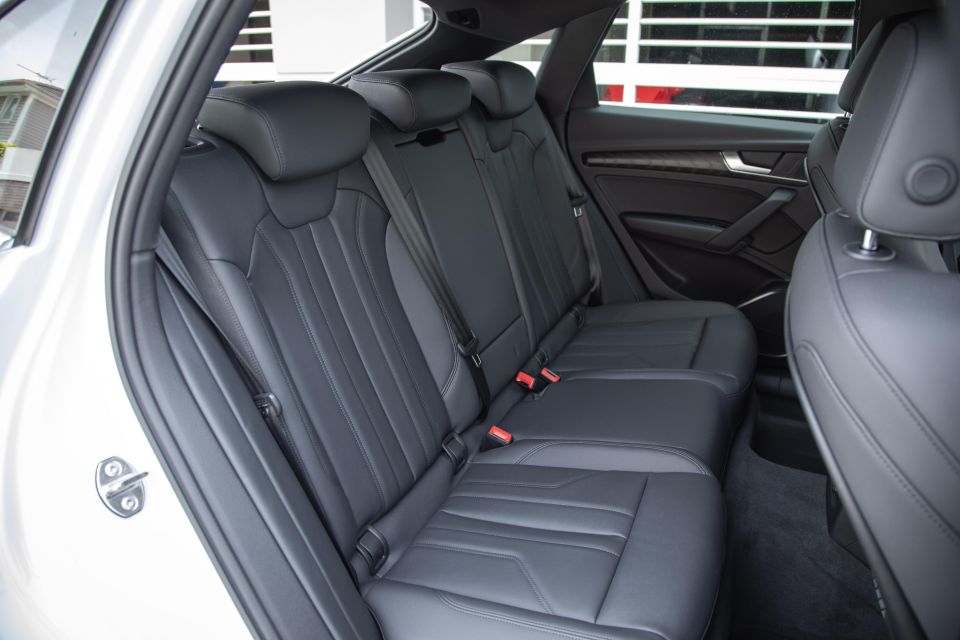
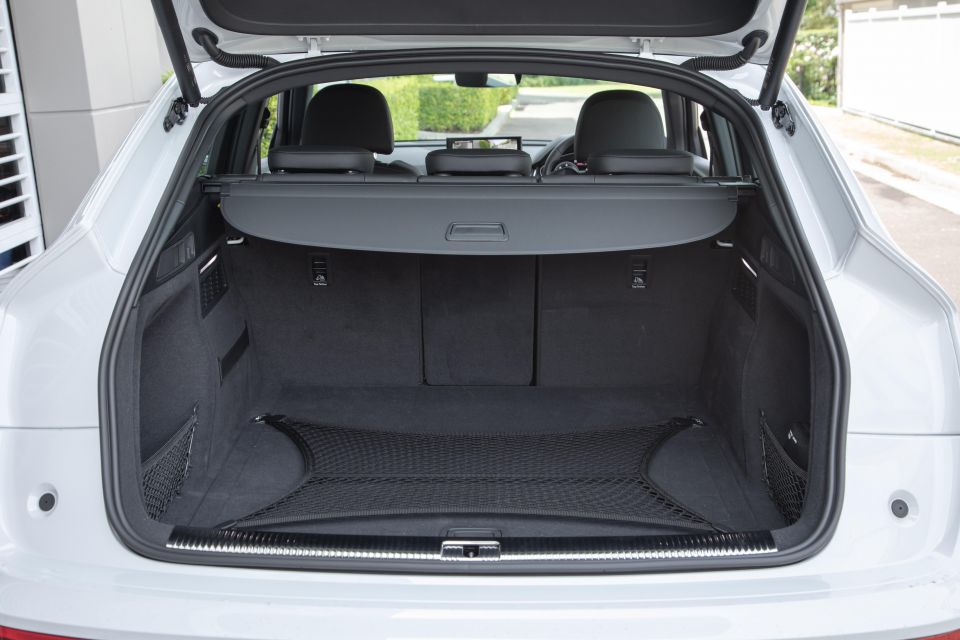
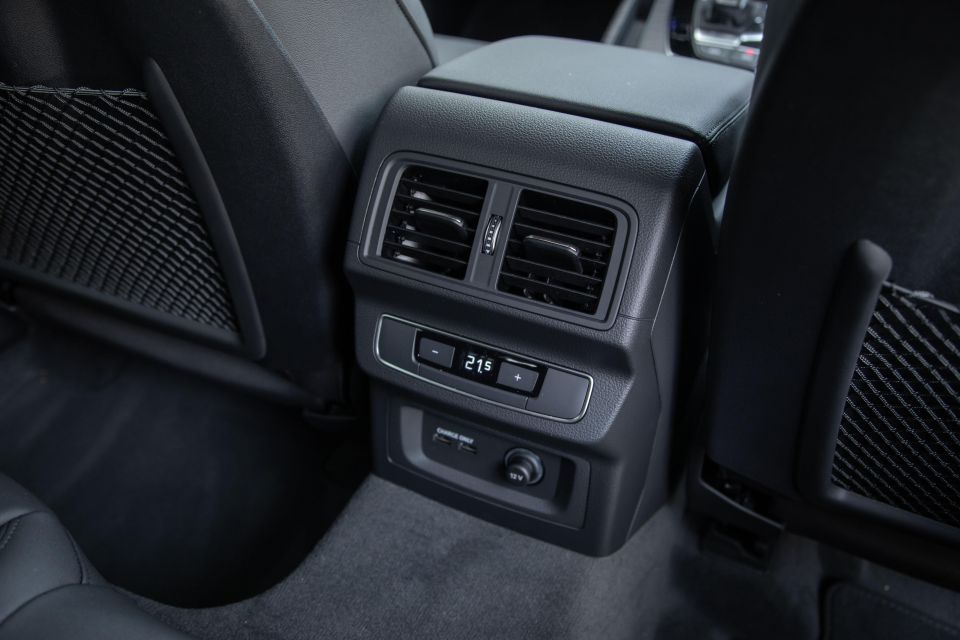
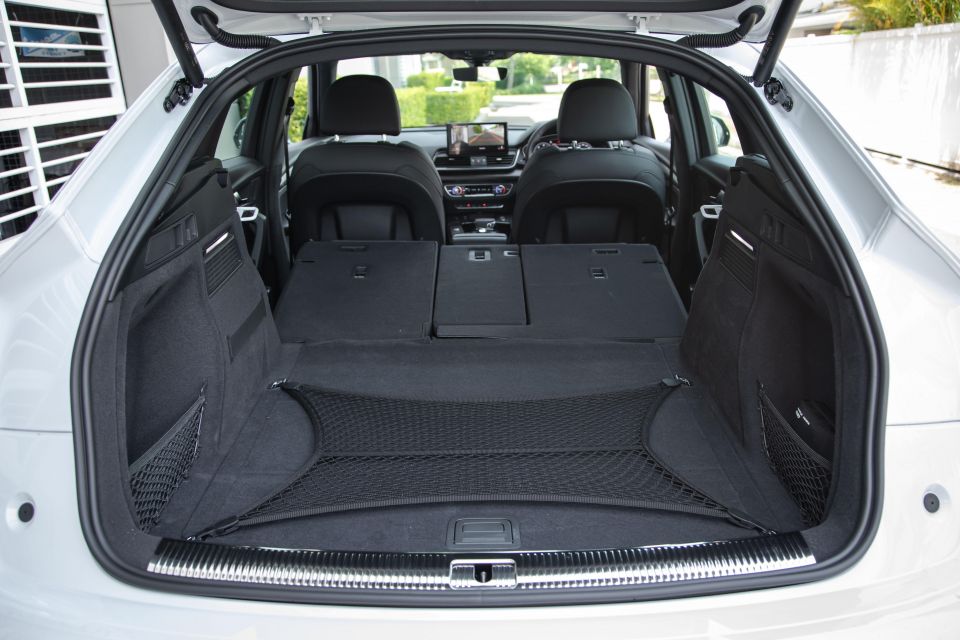
The only main gripe is the pedal array, which sets the pedal much higher than left foot rest, making the driver’s posture slightly uncomfortable. It’s the scourge of most Audis thought it only seems to bother some users, such as yours truly.
Like the wagon, rear-seat room is decent by most measures and performs comfortably as a four-adult proposition, with the third climate control zone and dual USB power nice inclusions, particularly if you have kids who want to keep devices powered during long trips.
All up, the Q5 Sportback interior is both familiar and quite uncompromising. And feels every bit worth the 40 TDI’s asking price.
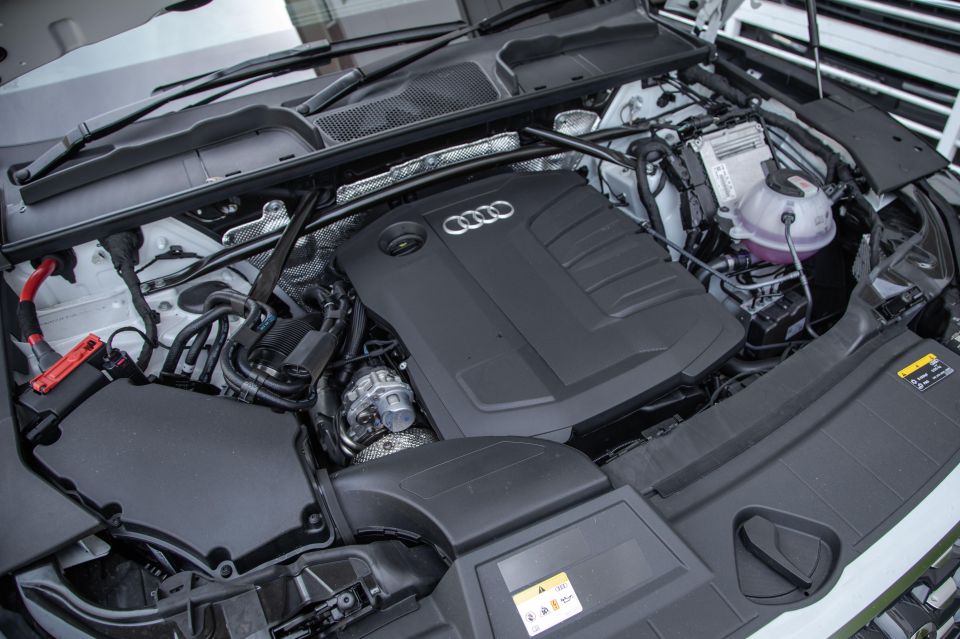
The base Q5 fits a 2.0-litre turbo-diesel four that includes 12V mild-hybrid technology. It’s the familiar unit as used in the 40 TDI wagon, producing 150kW in a 3800-4200rpm band with peak torque of 400Nm available from 1750rpm.
Drive is plied through a seven-speed dual-clutch transmission and quattro all-wheel drive, bringing with it a claimed 0-100km/h time of 7.6 seconds and a top speed of 222km/h, which is identical to its wagon twin. It weighs in at 1900kg neat and offers braked towing of up to 2000kg.
This latest Q5 brings what Audi calls “quattro with ultra technology”. Essentially, this means clutch-actuated on-demand all-wheel drive rather than a permanent all-paw-drive system, a fuel saving measure to remove some parasitic drag from the driveline.
On that, combined fuel consumption is a frugal 5.4L/100kms. Our test machine returned middle-to-high sevens during what was mostly gentle urban driving, improving markedly when stretching its legs along a motorway.
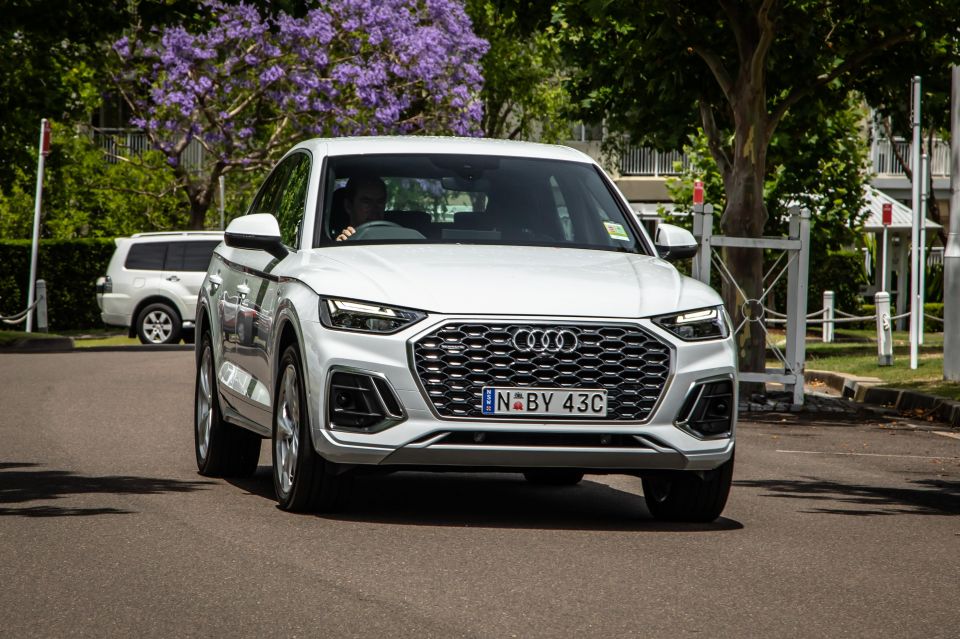
Questions about whether diesel power is ill-fit for a sport-infused ‘coupe’ SUV are quickly dispelled one you’re on the move.
The diesel is quiet, benign and friendly. Dig in and the torquey roll-on thrust is palpable, making the 40 TDI feel swifter than what the numbers otherwise suggest.
Lag is quite minimal, too, though is served best tapping the transmission controlled into ‘Sport’ mode prior to calling up sudden bursts of acceleration. It’s real-world swift, without fuss or any highly strung histrionics.
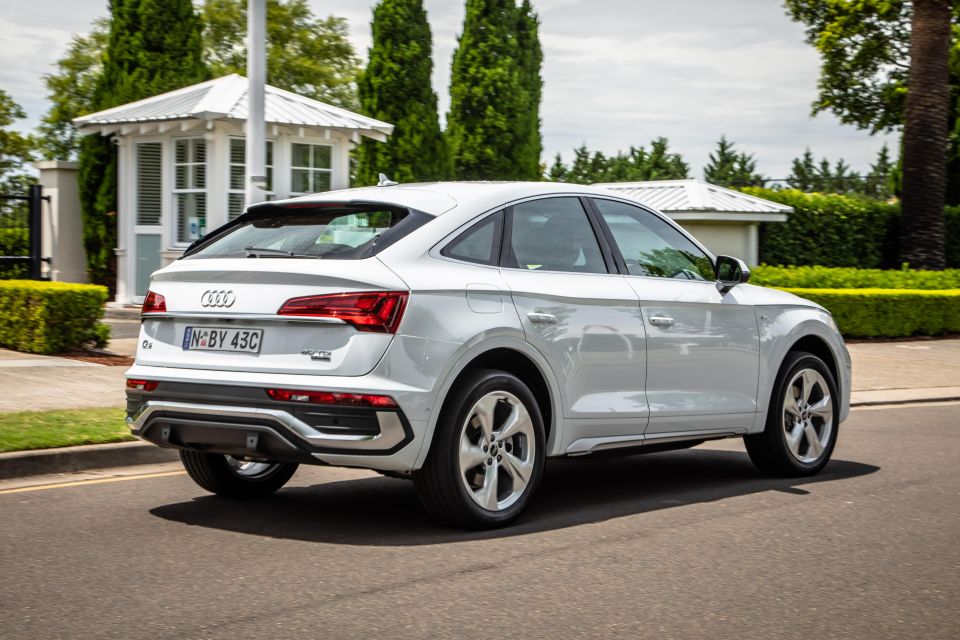
Where expert car reviews meet expert car buying – CarExpert gives you trusted advice, personalised service and real savings on your next new car.
This Sportback version was a little cleaner, nicer in behaviour at low speed and during stop-start driving than the 40 TDI wagon I reviewed a while back. Audi persists with a dual-clutch transmission design even if ultimately the conventional torque converter, as used in much of its high-performance gear, remains more refined.
As DCTs go, this one is a very good example mostly free of the clunkiness of older units used by Audi and Volkswagen, though it’s not perfect. There are still a few faint nudges changing gears and you can feel the clutches working away, particularly moving slowly uphill.
No such gripe for the so-called ‘ultra’ on-demand all-wheel drive, which on our test car remaining completely seamless bringing the rear axle into and out of service.
The ride, too, is quite decent, somewhat less wooden and terse than I remember of the 40 TDI wagon. It gets a little harsh across sharp speed bumps, but there’s generally nice compliance. It smooths out rough surfaces while maintaining a decent handle on body control and a good sense of connection with the road.
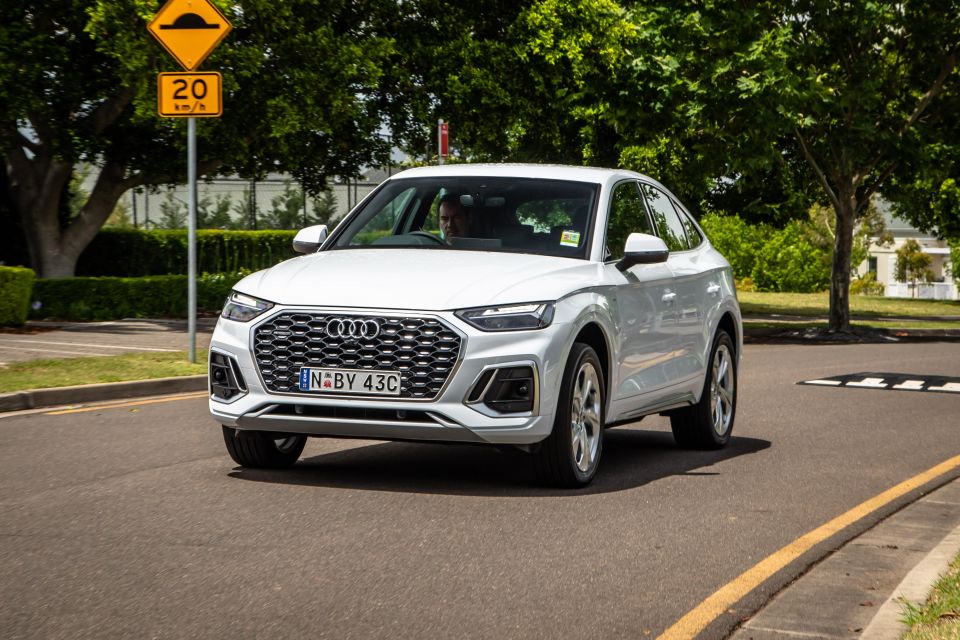
Handling wise, there’s nothing particularly sporty about the Sportback outside of the styling. It’s direct and competent enough, and there’s no shortage of grip from the tyres, though the light and slightly aloof steering feel and its 1.9 tonnes of inertia don’t exactly encourage digging very deep into its dynamic limits.
Where the Q5 feels right at home is dialling up the cruise control on the open road, where its nature is quiet and dignified, where it’s quite resilient to ambience and tyre noise, and where the softly-ticking diesel returns properly impressive consumption.
The so-call mild-hybrid fuel saving measures only ever activate under a rare set of circumstances, but at least this lean 12-volt system isn’t lugging around the (dead) weight in complexity of the elaborate 48-volt design used in six-cylinder Audi models – including the SQ5 TDI.
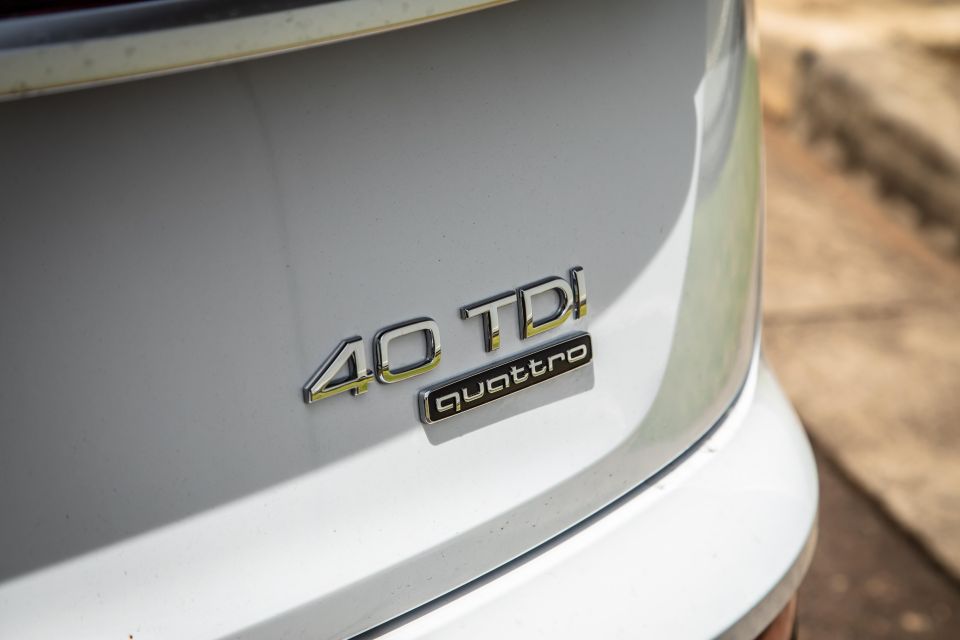
Until Audi follows Jaguar, Mercedes-Benz and Volvo into five-year warranty territory, its importer will continue to cop a kick for the meagre standard three-year surety, if without a kilometre cap applied.
It’s applied from first registration, too, if you’re thinking of saving some coin on an ex-demonstrator version.
You can stump up extra to extend warranty by two years, if with a kilometre-cap applied of 100,000km or 150,000km depending on the option chosen.
Servicing intervals are a typical 12 months or 15,000km, whichever comes first, with a five-year package wanting for a total outlay of $3140.
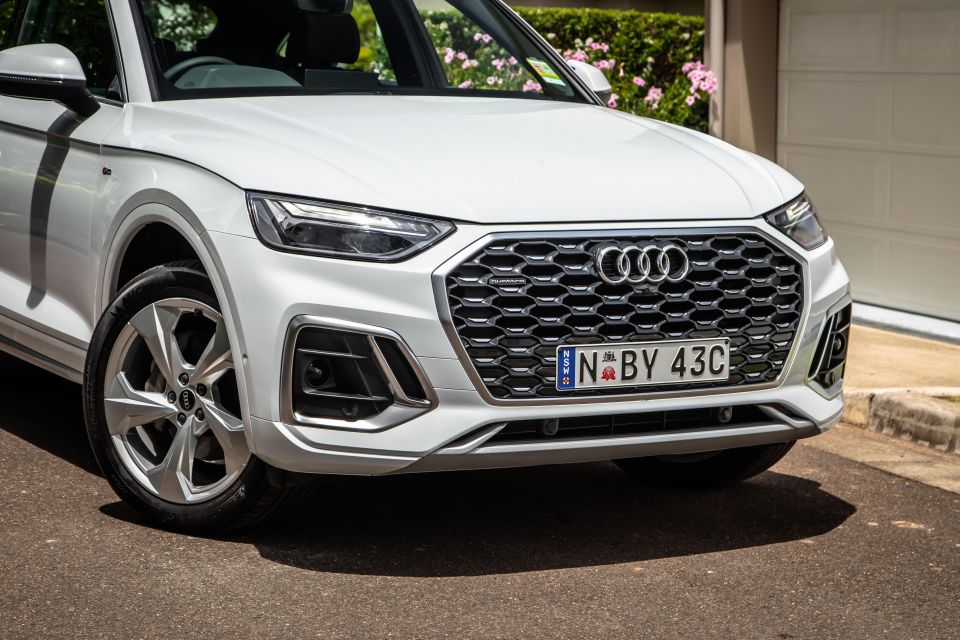
While the notion of a cheap diesel-powered luxury SUV coupe might seem like a muddled oxymoron, Audi lobs the most affordable premium sloped-back mid-sizer out there as a convincing package worthy on its own merits.
All and all, the 40 TDI powertrain fits the bill nicely, if without quite the character of the 45 TFSI petrol version.
It looks the pick of the litter if you’re after cheap running costs, after a sanguine driving experience or are in the habit of clocking up a lot of kilometres during long trips. You’ve now got an option with fancier coupe silhouette if the wagon’s too plain for you tastes, and that’s surely a positive thing.
There’s nothing cheap about is equipment fit-out and nothing cost-conscious about the way it drives. In fact, very little about the Q5 Sportback 40 TDI even hints that you’ve gone the least-expensive route to a premium family hauler.
Better still, in terms of outright practicalities, the newcomer to the Audi stable proves that you can have your cake and still look trim and fit while you’re eating it.
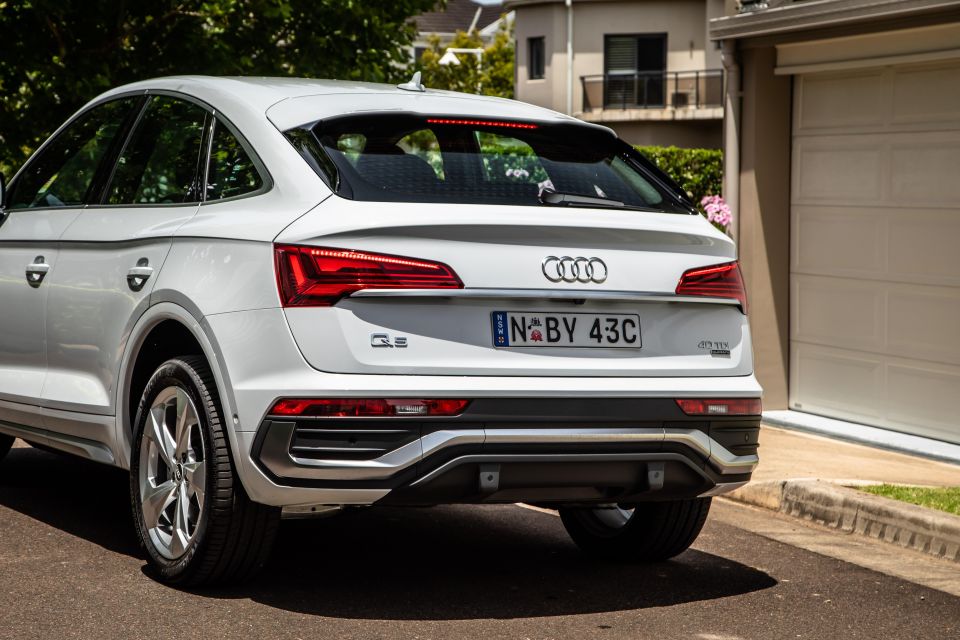
Click the images for the full gallery
MORE: Everything Audi Q5
Where expert car reviews meet expert car buying – CarExpert gives you trusted advice, personalised service and real savings on your next new car.


Andrew Maclean
12 Days Ago


James Wong
9 Days Ago


Max Davies
7 Days Ago
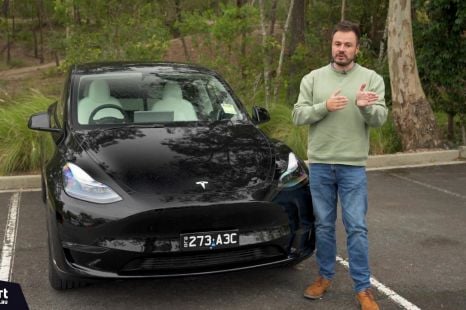

Paul Maric
5 Days Ago
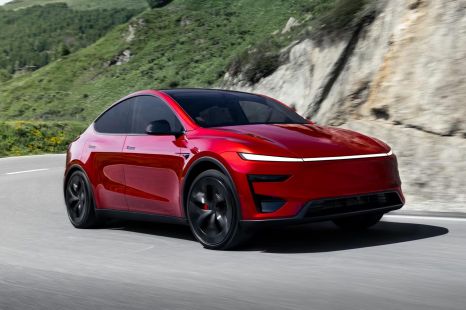

William Stopford
4 Days Ago
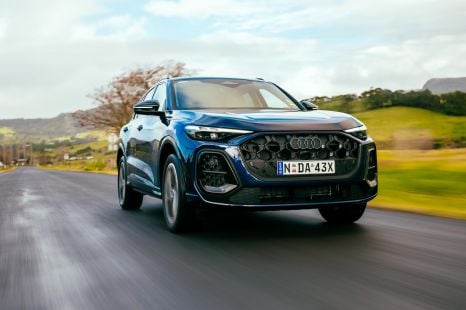

James Wong
2 Days Ago